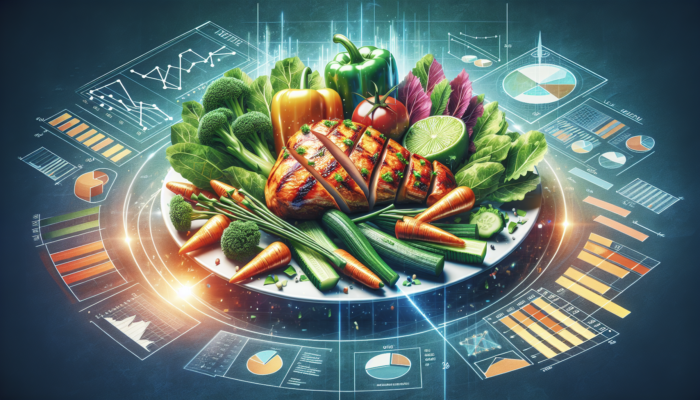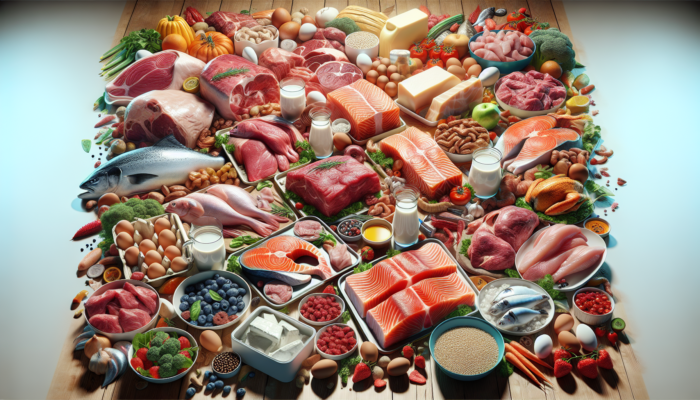Discover the Extensive Health Benefits of Multivitamins for Optimal Wellness
Uncover the Essential Vitamins and Minerals Crucial for Maximum Health

Multivitamins serve as an essential nutritional powerhouse, meticulously formulated to counteract common deficiencies prevalent in our modern diets. In today’s fast-paced environment, many individuals struggle to achieve a balanced consumption of fruits, vegetables, and whole grains. This is where multivitamins become invaluable; they act as a practical solution to bridge nutritional gaps. For those who may not have immediate access to fresh produce or who lead busy lifestyles, integrating a daily multivitamin can be particularly advantageous, ensuring that vital nutrients are consistently available even during the most hectic days.
Typically, multivitamins encompass a wide range of essential vitamins and minerals that are vital for sustaining optimal health. These crucial nutrients generally include:
- Vitamin A
- Vitamin C
- Vitamin D
- Vitamin E
- Vitamin B complex (including B1, B2, B3, B5, B6, B7, B9, B12)
- Calcium
- Iron
- Zinc
By offering a concentrated source of these essential nutrients, multivitamins can significantly enhance overall health and well-being, positioning themselves as an integral component of a daily wellness routine.
Elevate Your Lifestyle with the Ease of Multivitamins
In our rapidly evolving society, the convenience provided by multivitamins is invaluable. They offer a straightforward and effective method for individuals to fulfill their nutritional needs without the complexities of meal preparation or cooking. For busy professionals, students, and parents managing multiple responsibilities, a daily multivitamin can provide a reliable supplement to their often unpredictable diets, ensuring they receive the necessary nutrients.
Furthermore, certain demographics, including older adults, those with specific dietary restrictions, or individuals residing in food deserts, encounter significant barriers to accessing a diverse array of fresh foods. In these contexts, multivitamins can deliver a crucial nutritional boost. They also benefit individuals who experience challenges with nutrient absorption due to particular health conditions, such as gastrointestinal disorders.
The easy accessibility of multivitamins makes them a valuable addition to anyone’s health strategy, especially when navigating dietary obstacles. With a simple daily dose, individuals can proactively manage their health, ensuring they do not miss out on essential micronutrients critical for overall wellness.
Address Nutritional Gaps Effectively with Tailored Multivitamin Solutions
Nutritional deficiencies can stem from various factors, including lifestyle choices, health conditions, and socio-economic limitations. Multivitamins provide a practical approach to addressing these nutritional shortfalls. For instance, a vegan or vegetarian diet, while beneficial, may lack sufficient amounts of Vitamin B12, iron, and certain omega-3 fatty acids. In such cases, a multivitamin can ensure that these individuals obtain the necessary nutrients vital for their health.
Consider specific groups with unique dietary requirements, such as pregnant women, who need higher levels of folic acid, or athletes who may require additional vitamins to enhance energy levels and recovery. Multivitamin formulations specifically designed for these demographics can effectively address their distinct nutritional challenges, supporting both health and performance.
Ultimately, multivitamins function as a vital resource in mitigating dietary deficiencies, serving as a safety net that empowers individuals to thrive despite their dietary limitations.
Enhance Your Overall Health and Vitality with Multivitamins

The diverse range of nutrients present in multivitamins works synergistically to enhance overall health and vitality. A well-rounded multivitamin can bolster immune function, increase energy levels, and lower the risk of chronic diseases. For example, vitamin C and zinc are renowned for their immune-boosting properties, while the B vitamins are essential for energy metabolism.
Moreover, the preventive benefits of multivitamins should not be underestimated. Regular consumption may contribute to a reduced risk of chronic illnesses, such as heart disease and osteoporosis. By offering comprehensive nutrient support, multivitamins aid individuals in maintaining vitality throughout their lives, establishing a solid foundation for a healthier future.
In conclusion, the potential health benefits extend beyond basic supplementation; they can substantially improve one’s quality of life by fostering resilience against various health challenges.
Evaluating Multivitamins Against Nutrients from Whole Foods
Understanding Nutritional Bioavailability in Your Diet
When investigating nutritional bioavailability, it’s essential to recognize that not all nutrients are created equal, especially when comparing supplements to whole foods. Bioavailability refers to the extent and rate at which nutrients are absorbed into the bloodstream. While multivitamins provide concentrated doses of vitamins and minerals, the body may not absorb these nutrients as effectively as those sourced from whole foods.
For instance, the bioavailability of iron from meat is significantly higher than that from plant-based sources, which often require specific conditions to enhance absorption. Similarly, certain vitamins, such as vitamin K, abundant in leafy greens, are better utilized by the body when consumed as part of whole foods.
Empirical studies highlight this disparity. For example, research comparing the absorption of vitamin C from citrus fruits versus ascorbic acid supplements revealed that the body absorbs nutrients from whole food sources more effectively. This suggests that while multivitamins can assist in meeting daily requirements, whole foods frequently deliver nutrients in a more bioavailable form, underscoring their importance in a balanced diet.
Recognizing the Long-Term Health Effects of Nutritional Choices

Relying primarily on multivitamins instead of obtaining nutrients from whole foods can lead to various long-term health complications. Over time, individuals who depend solely on supplements may overlook the diverse array of nutrients provided by whole foods, which work together synergistically to promote optimal health. Unlike multivitamins, whole foods offer dietary fiber, antioxidants, and a complex assortment of phytochemicals that play crucial roles in disease prevention and overall health maintenance.
To sustain a balanced approach to nutrition, individuals should consider actionable strategies. First, aim to incorporate a vibrant variety of whole foods into your meals to ensure a diverse nutrient intake. Second, view multivitamins as a supplementary aid rather than a replacement for nutrient-dense foods, particularly if you face specific dietary restrictions or health conditions.
By nurturing this balance, individuals can maximize the health benefits derived from both multivitamins and whole foods, fostering a holistic approach to nutrition that supports long-term well-being.
Insights from Experts on Nutrition and Multivitamins
Nutritionists and health professionals frequently emphasize that multivitamins should complement a nutritious diet rather than serve as the primary source of nutrients. Many experts advocate assessing your dietary needs first and using multivitamins judiciously to fill nutritional gaps. For instance, if blood tests indicate deficiencies in specific nutrients, targeted supplementation can be particularly beneficial.
Moreover, professionals recommend considering specific life stages and health conditions when determining whether to utilize multivitamins. Pregnant women, for example, may find prenatal vitamins advantageous for supporting fetal development, while older adults might require increased vitamin D and calcium to maintain bone health.
Ultimately, the consensus among health professionals is clear: while multivitamins can act as a safety net for nutritional deficiencies, they cannot replace the comprehensive benefits derived from consuming whole foods. Prioritizing a balanced diet rich in diverse nutrients remains the cornerstone of global health recommendations.
Exploring the Nutritional Richness of Whole Foods
Embracing a Diverse Nutrient Landscape
Whole foods represent nature’s original multivitamins, providing a rich and varied nutrient profile that extends beyond mere vitamins and minerals. When you consume whole foods, you gain not just isolated nutrients but also a complex amalgamation of vitamins, minerals, proteins, healthy fats, and carbohydrates, all of which work synergistically to enhance your health.
For example, fruits and vegetables are not only rich in vitamins and minerals but also provide dietary fiber, which is essential for maintaining digestive health. Whole grains offer not only B vitamins but also essential fatty acids and antioxidants linked to reduced risks of chronic diseases.
The synergistic effect of these nutrients is a significant reason why whole foods are often considered superior to isolated nutrients or supplements. The body adapts to and utilizes the nutrients more holistically. For instance, the antioxidants and anti-inflammatory compounds found in berries, combined with their fiber content, can help reduce inflammation and promote cardiovascular health in ways that a multivitamin cannot replicate.
Prioritizing Natural and Unprocessed Foods
The nutritional integrity of whole foods lies in their unprocessed nature. In contrast to many supplements, which may contain additives, fillers, and artificial ingredients, whole foods retain their natural composition, making them inherently healthier options. Consuming minimally processed foods preserves their nutrient density, ensuring maximum health benefits.
Consider the difference between a whole apple and an apple-flavored candy. The whole apple provides dietary fiber, vitamins, and phytonutrients, while the candy consists primarily of sugar and empty calories. This comparison emphasizes how whole foods are more than mere sources of nutrients; they deliver essential compounds that enhance overall health.
In addition to their nutritional advantages, whole foods offer additional health benefits, including increased satiety and improved digestive health. The fiber found in whole grains, fruits, and vegetables supports digestion and can help prevent chronic diseases, offering comprehensive health benefits that multivitamins cannot match.
Uncovering Health Benefits Beyond Basic Nutrients
Whole foods provide an abundance of health advantages that extend beyond simply supplying essential nutrients. One of the most significant benefits is their rich fiber content, which plays a vital role in maintaining digestive health and may help prevent conditions such as constipation and diverticulitis.
Fiber also aids in regulating blood sugar levels, making it a crucial component for those managing diabetes or blood sugar irregularities. Moreover, whole foods such as fruits, vegetables, legumes, and whole grains are rich in antioxidants and phytochemicals, which have been linked to a decreased risk of various ailments, including cancer and heart disease.
The health benefits of whole foods also extend to mental well-being. Nutrient-dense foods support brain health through essential fatty acids and antioxidants that can enhance mood and cognitive function. Studies indicate that diets rich in fruits, vegetables, and whole grains correlate positively with mental health, highlighting the holistic impact of nutrition on overall wellness.
In summary, the health benefits of whole foods encompass much more than just vitamins and minerals, making a compelling case for prioritizing them in dietary choices over multivitamins alone.
Examining Nutrient Absorption Rates: A Comprehensive Analysis
Understanding the Concept of Nutrient Bioavailability
The differences in nutrient absorption between multivitamins and whole foods are noteworthy. Bioavailability plays a crucial role in determining how effectively the body can utilize the nutrients it consumes. While multivitamins can deliver concentrated doses of vitamins and minerals, they often lack the intricate interactions present in whole foods that enhance absorption.
For instance, the iron found in red meat is significantly more bioavailable than the iron sourced from plant-based foods, which may require the presence of vitamin C to improve absorption. Additionally, fat-soluble vitamins, such as A, D, E, and K, are better absorbed when consumed with dietary fats, which are more prevalent in whole foods.
Research consistently highlights that whole foods not only supply nutrients but also facilitate their absorption through complementary compounds. Thus, while multivitamins can be beneficial, they may not achieve the same results in terms of nutrient absorption as a well-rounded diet rich in whole foods.
Identifying Factors Influencing Nutrient Absorption
Numerous factors affect the efficiency of nutrient absorption from both multivitamins and foods. The food matrix, which refers to the combination of nutrients and their physical and chemical forms, significantly influences nutrient utilization. For example, cooked tomatoes exhibit higher bioavailability for lycopene than raw tomatoes, illustrating how cooking methods can impact nutrient absorption.
Additionally, individual characteristics such as age, health status, and even gut microbiota can significantly influence nutrient absorption. For instance, those with compromised digestive systems may experience reduced absorption rates, making whole foods more advantageous in providing a wider array of nutrients that promote digestive health.
Lifestyle factors, including stress and dietary choices, can also affect how efficiently nutrients are absorbed. Consuming meals rich in sugar or heavily processed foods may impede the body’s ability to absorb essential nutrients effectively.
To optimize nutrient absorption, individuals should remain mindful of these factors and adjust their dietary practices accordingly, ensuring they maximize the benefits derived from both food and supplements.
Effective Strategies for Maximizing Nutrient Uptake
To ensure the body extracts maximum value from both multivitamins and whole foods, several effective strategies can be implemented. Making minor adjustments to your dietary regime and supplement practices can significantly enhance your nutrient uptake.
- Pair fat-soluble vitamins with healthy fats (e.g., avocado, olive oil) to enhance absorption.
- Include vitamin C-rich foods (such as citrus fruits) alongside iron-rich plant foods to boost iron uptake.
- Avoid taking calcium supplements with iron-rich meals, as calcium can inhibit iron absorption.
- Incorporate fermented foods (like yogurt and sauerkraut) to support gut health, which can enhance overall nutrient absorption.
- Maintain hydration, as water is essential for the transport and absorption of nutrients.
- Chew food thoroughly to assist digestion and enhance nutrient uptake.
- Consider taking multivitamins with meals rather than on an empty stomach to improve absorption rates.
By employing these strategies, individuals can enhance the effectiveness of their nutrient intake, ensuring they reap the full benefits from both multivitamins and whole foods in their diets.
Assessing the Cost and Accessibility of Nutritional Choices
Weighing the Costs of Multivitamins Against Whole Foods
When evaluating the costs associated with multivitamins relative to whole foods, it’s vital to consider not only monetary value but also the overall health benefits they provide. While a month’s supply of multivitamins might seem more economical than purchasing a variety of nutrient-rich foods, the true cost encompasses health outcomes and nutritional quality.
For many individuals, particularly those on limited budgets, multivitamins can serve as a cost-effective strategy to ensure adequate nutrient intake. However, it is essential to recognize that relying solely on supplements may lead to unbalanced nutrition and missed opportunities for the health benefits offered by whole foods.
Moreover, purchasing fresh, whole foods in bulk or from local markets can often help reduce costs, enabling individuals to maintain a nutritious diet without resorting to expensive supplements. Understanding these cost dynamics can empower individuals to make informed decisions that balance budget constraints while maximizing nutritional value.
Overcoming Nutritional Accessibility Challenges
Accessing vital nutrients solely through diet can present numerous challenges, particularly in areas where fresh, whole foods are scarce. For individuals residing in food deserts or low-income neighborhoods, acquiring a varied and nutritious diet may be daunting. In such scenarios, multivitamins can serve as an essential supplement, bridging the gap and supplying critical nutrients.
Furthermore, dietary restrictions, such as allergies or specific health conditions, can complicate access to certain foods, leading individuals to consider multivitamins as a comprehensive solution for their nutrient needs. It is critical to account for these factors when evaluating nutritional requirements and the role of supplements in maintaining a balanced diet.
Organizations and initiatives dedicated to enhancing food accessibility can significantly influence the promotion of nutritious eating habits on a global scale. Addressing accessibility challenges is fundamental to ensuring that everyone can achieve optimal health outcomes through a varied and nutrient-rich diet.
Finding the Balance Between Cost and Nutritional Value
Achieving the right balance between the cost of multivitamins and the nutritional benefits of whole foods requires careful planning and consideration. Individuals can take proactive steps to develop a well-rounded nutritional strategy that effectively integrates both options.
One effective approach involves prioritizing nutrient-dense foods within your budget. Focusing on seasonal produce, bulk grains, and legumes can provide a wealth of nutrients without straining your finances. Additionally, individuals can utilize multivitamins as supplementary support, especially when dietary options are limited due to financial constraints or lifestyle demands.
Educating oneself about nutritional needs and the role of various food groups can also enhance decision-making. For example, understanding which foods offer optimal sources of specific vitamins and minerals allows individuals to make informed choices that align with their health goals and budgets.
By thoughtfully balancing cost and nutrition, individuals can foster a sustainable approach to optimal health that incorporates both multivitamins and nutrient-rich whole foods.
Research-Driven Insights on Multivitamins Versus Nutrient-Rich Foods
Clinical Evidence Supporting the Effectiveness of Multivitamins
Clinical studies examining the effectiveness of multivitamins yield valuable insights into their role in enhancing health outcomes. Numerous studies have focused on how multivitamins can effectively address nutrient deficiencies, particularly among populations at increased risk due to dietary limitations or lifestyle choices.
Research indicates that taking multivitamins can lead to measurable improvements in health markers. For example, a significant study found that daily multivitamin consumption enhanced the levels of various vitamins and minerals in participants, subsequently reducing the incidence of specific nutrient-related health issues.
Key findings from recent research include:
- Multivitamins can lower the risk of nutritional deficiencies in high-risk populations.
- Daily multivitamin intake is associated with increased energy levels and overall vitality.
- Some studies suggest a potential reduction in the risk of chronic diseases among individuals who regularly consume multivitamins.
- Research indicates that multivitamins can positively impact immune health, particularly during cold and flu seasons.
These findings underscore the importance of multivitamins as a supplementary measure for supporting health, especially when dietary intake may not meet individual nutritional needs.
Exploring Nutritional Science Related to Whole Foods
Nutritional science consistently emphasizes the extensive advantages of obtaining nutrients from whole foods compared to relying solely on supplements. Comprehensive studies demonstrate that diets rich in fruits, vegetables, whole grains, and lean proteins contribute to superior overall health outcomes.
The benefits of whole foods extend beyond individual vitamins and minerals. Nutritional science highlights the synergy of nutrients working together, as the complex matrix of whole foods enhances their effectiveness in promoting health. For instance, components found in garlic not only exhibit antioxidant properties but also support heart health through various mechanisms.
Research also underscores the significance of dietary fiber, antioxidants, and phytochemicals, which are abundant in whole foods and provide additional health benefits that multivitamins may lack. These elements play a role in reducing inflammation, enhancing gut health, and improving metabolic function, establishing a clear preference for whole foods in the nutrition dialogue.
Conducting a Thorough Comparative Analysis
When comparing the health benefits of multivitamins and whole foods, it’s essential to recognize that they serve different purposes within a nutritional strategy. Multivitamins can provide targeted supplementation to effectively address specific deficiencies; however, they do not replicate the comprehensive approach inherent in whole foods.
Studies frequently indicate that while multivitamins can help mitigate deficiencies, they cannot match the extensive benefits derived from a diet rich in whole foods and diverse in composition. Whole foods not only supply vitamins and minerals but also a plethora of other health-enhancing compounds, making them indispensable in any nutritional plan.
Expert analyses typically advocate for a balanced diet that prioritizes whole foods while acknowledging multivitamins as valuable supplements for those requiring additional support. The key lies in understanding these roles and strategically incorporating both multivitamins and whole foods into one’s diet for optimal health benefits.
Implementing Practical Applications and Recommendations
Creating a Daily Nutritional Strategy
To effectively integrate both multivitamins and whole foods into a daily nutritional regimen, individuals must adopt a thoughtful approach. Recognizing that both can play crucial roles in achieving a balanced diet is essential for overall health.
Begin by evaluating your unique nutritional requirements, which may vary based on lifestyle, age, health status, and dietary preferences. Use this information to craft a meal plan that emphasizes whole foods while addressing any nutritional gaps that can be filled with multivitamins. A balanced approach might involve a daily routine where meals feature a variety of colorful, whole foods, complemented by a multivitamin taken at a specific time each day, ensuring that nutrients from both sources work together harmoniously.
For instance, breakfast could consist of oatmeal topped with berries and nuts, providing fiber and antioxidants, while the multivitamin acts as a safeguard for any missing nutrients. Lunch may include a salad loaded with greens, vibrant vegetables, and lean protein, paired with a multivitamin in the afternoon to cover any nutritional gaps.
Through this strategic planning, individuals can optimize their health outcomes, ensuring they receive the full spectrum of nutrients necessary for their overall well-being.
Addressing Special Dietary Needs with Precision
For individuals with specific dietary requirements, nuances exist when deciding between multivitamins and food sources. For instance, those with food allergies, intolerances, or ethical dietary restrictions may find it challenging to consume a wide range of nutrient-dense foods. In such cases, multivitamins can provide essential support to meet their nutritional needs.
Additionally, individuals managing chronic conditions or undergoing medical treatments may require tailored approaches to nutrient intake. Consulting with healthcare providers or registered dietitians can help assess these needs and develop personalized nutritional strategies that may incorporate both multivitamins and whole foods.
Remaining informed about individual nutritional requirements and adjusting dietary choices accordingly is paramount. Understanding which nutrients are critical for your health journey empowers individuals to make informed decisions regarding supplementation and food sources.
Considering Lifestyle Factors in Nutritional Choices
Lifestyle factors significantly influence an individual’s decision to utilize multivitamins versus relying solely on food nutrients. Busy schedules, travel, and social commitments often lead to dietary shortcuts. In these scenarios, multivitamins can serve as a convenient solution to support nutrition during times of hectic activity.
Conversely, those who prioritize meal preparation and have access to a diverse array of food options are more likely to benefit from whole foods. Implementing mindful eating practices and creating an environment conducive to healthier choices can greatly affect how nutrients are sourced and consumed.
Ultimately, individuals must evaluate their lifestyle patterns and make informed decisions about their nutritional approach. This self-reflection can help achieve a balance between multivitamin use and the consumption of whole foods, leading to improved health outcomes.
Anticipating Future Trends in Nutrition
Innovations in Nutritional Supplement Technology
As scientific advancements continue to advance, the field of nutritional supplements is evolving. Innovations in supplement technology promise to enhance the efficacy and specificity of multivitamins. For instance, the rise of targeted formulations tailored to individual health needs is gaining traction. These advancements may include personalized multivitamins customized to specific genetic profiles, health conditions, or lifestyle factors.
Moreover, the incorporation of bioactive compounds derived from whole foods into multivitamin formulations is becoming increasingly prevalent. This trend aims to create supplements that not only deliver essential nutrients but also replicate the holistic benefits of whole foods, thereby reinforcing their role in health optimization.
As the landscape of nutritional supplements transforms, consumers may encounter a broader range of options that align with their specific health goals, heralding a new era of personalized nutrition tailored to individual needs.
Recognizing Shifts in Dietary Trends
Shifting dietary patterns reflect an increasing awareness of the critical role nutrition plays in health. As individuals become more conscious of their food choices, a noticeable trend toward plant-based diets, whole food consumption, and organic sourcing is evident. These shifts underscore the importance of nutrient-dense options over processed foods and supplements.
With this growing emphasis on healthful eating, multivitamins may be viewed as complementary rather than substitutes for whole foods. Educational initiatives advocating the benefits of consuming a balanced diet rich in whole foods can help shift the narrative toward a more comprehensive understanding of nutrition.
As dietary patterns continue to evolve, it remains essential for individuals to stay informed about their nutritional needs and explore both multivitamins and whole foods as valuable tools in their health journeys.
Anticipating Individual Nutritional Needs
The future of nutrition may involve forecasting individual nutritional needs through advancements in technology and data analytics. Personalized nutrition, informed by genetics, lifestyle habits, and health data, can pave the way for tailored approaches that optimize both multivitamins and whole foods consumption.
Wearable technology and applications that track dietary intake and health markers can assist in customizing nutrient recommendations, empowering individuals to make informed decisions about their supplementation and food choices. This predictive nutrition model could lead to improved health outcomes by ensuring individuals receive the precise nutrients they need for optimal functioning.
As we progress, staying engaged with emerging trends in nutrition will enable individuals to navigate their dietary choices effectively, achieving a balance between multivitamins and whole foods to meet their unique requirements.
Integrating AI in Nutritional Planning
The incorporation of artificial intelligence (AI) into nutritional planning signifies a groundbreaking shift in how individuals approach their dietary needs. AI can aid in analyzing personal health data and dietary habits, providing tailored recommendations for both multivitamins and whole foods. This innovative technology can identify nutrient gaps, suggest appropriate supplements, and create personalized meal plans aligned with individual preferences and health objectives.
Furthermore, AI-driven platforms can facilitate real-time monitoring of dietary intake, empowering individuals to make informed decisions regarding their nutrition. For instance, through machine learning algorithms, individuals can receive actionable insights about which foods or supplements best match their specific health requirements.
With the potential to revolutionize nutrition management, AI promises to enhance the equilibrium between multivitamins and whole foods, fostering a more personalized approach to health and wellness.
Promoting Sustainable Nutritional Practices
As awareness of environmental issues grows, sustainable nutrition practices are becoming increasingly crucial in shaping dietary choices. The future may see a greater emphasis on sustainably sourced foods and supplements that minimize environmental impact while maximizing health benefits.
Individuals may gravitate towards whole foods that are locally sourced and organic, while supplement manufacturers are likely to adopt sustainable practices in ingredient sourcing and packaging. This transformation can establish an ecosystem where nutrition aligns with environmental stewardship, reinforcing the value of both whole foods and multivitamins in a responsible manner.
By prioritizing sustainability in nutritional practices, individuals can contribute to a healthier planet while enhancing their personal health. The intersection of health and environmental consciousness will play a pivotal role in shaping future dietary trends.
Frequently Asked Questions (FAQs)
What are multivitamins and how do they function?
Multivitamins are dietary supplements that include a blend of vitamins and minerals, specifically designed to fill nutritional gaps in your diet and promote overall health and wellness.
Do I really need multivitamins if I consume a balanced diet?
If your diet is well-balanced and rich in whole foods, multivitamins may not be necessary. However, they can serve as a safety net to help ensure adequate nutrient intake.
Is it feasible to obtain all my nutrients from food alone?
Yes, it is possible to acquire all essential nutrients through a well-rounded diet rich in whole foods; however, some individuals may benefit from supplements to address particular nutritional deficiencies.
What distinguishes synthetic vitamins from natural ones?
Natural vitamins are sourced from food, while synthetic vitamins are chemically created. Some individuals may absorb natural vitamins more effectively due to their complex structures found in whole foods.
How can I determine if I need a multivitamin?
Indicators of nutrient deficiencies or specific dietary restrictions may suggest a need for supplementation. Consulting with a healthcare professional can help you accurately assess your nutritional needs.
Can multivitamins replace whole foods in my diet?
No, multivitamins should complement a healthy diet but not substitute whole foods, as whole foods provide additional benefits beyond just essential nutrients.
Are there any risks associated with taking multivitamins?
Some individuals may experience side effects from multivitamins, such as gastrointestinal discomfort or interactions with medications. It’s advisable to consult with a healthcare provider before starting any supplement regimen.
How can I enhance nutrient absorption from my food?
To improve nutrient absorption, pair fat-soluble vitamins with healthy fats, chew food thoroughly, and consume fermented foods to support gut health and digestion.
What are some excellent food sources of essential nutrients?
Fruits, vegetables, whole grains, nuts, seeds, lean proteins, and healthy fats serve as outstanding sources of essential nutrients that promote overall health and wellness.
Is it safe to take multivitamins every day?
For most individuals, taking multivitamins daily is deemed safe; however, it is essential to choose high-quality supplements and consult with a healthcare professional for personalized guidance.
Connect with us on Facebook!
This article Multivitamins vs. Food Nutrients: A Universal Guide originally appeared on https://athleticsupplement.com
The Article Multivitamins vs. Food Nutrients: Your Essential Guide Was Found On https://limitsofstrategy.com


